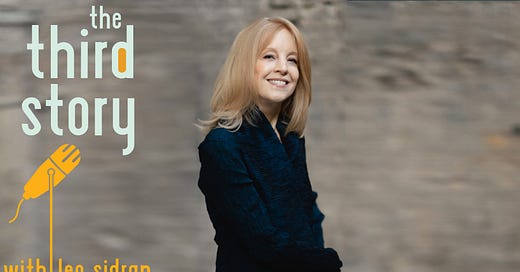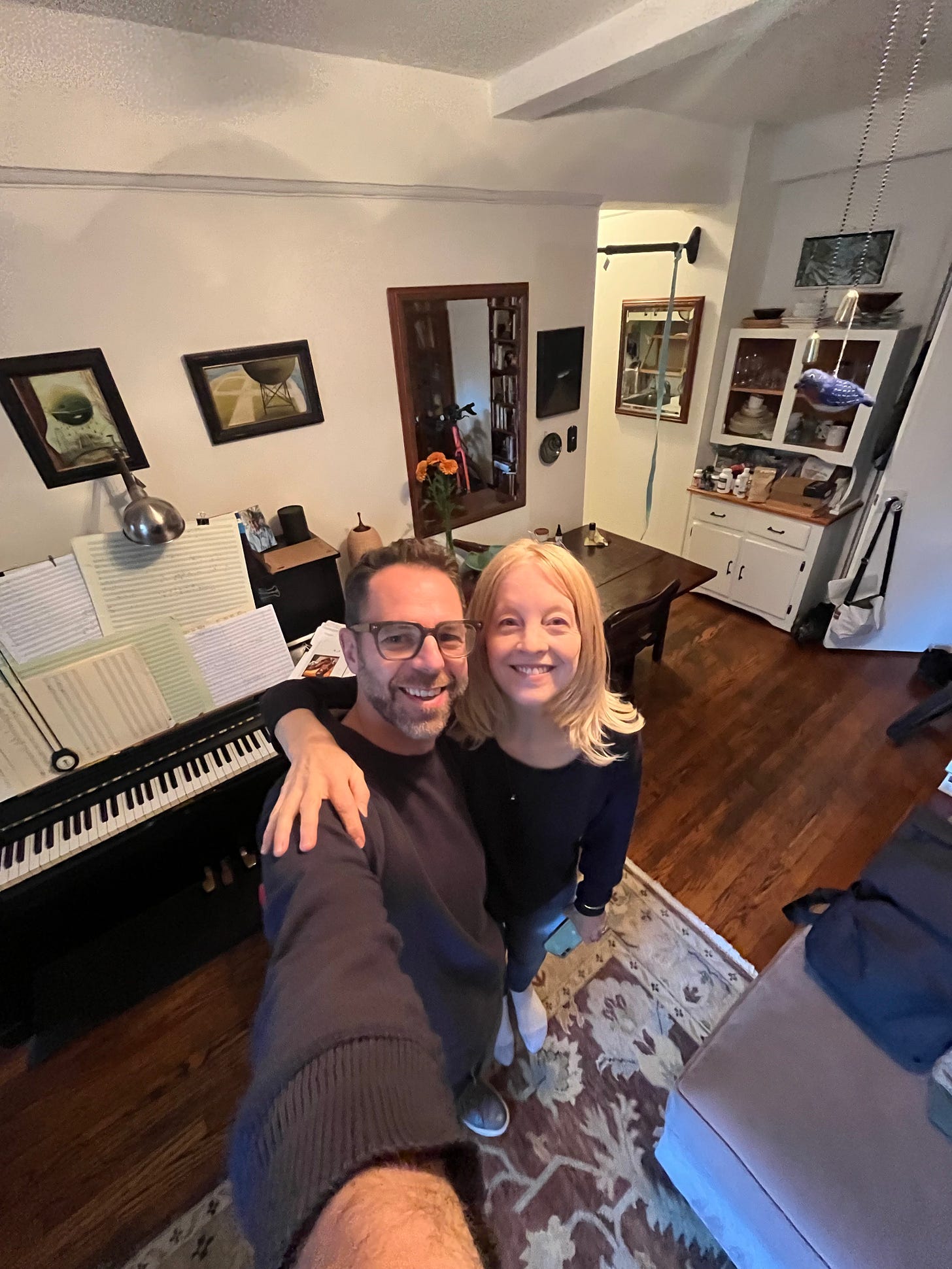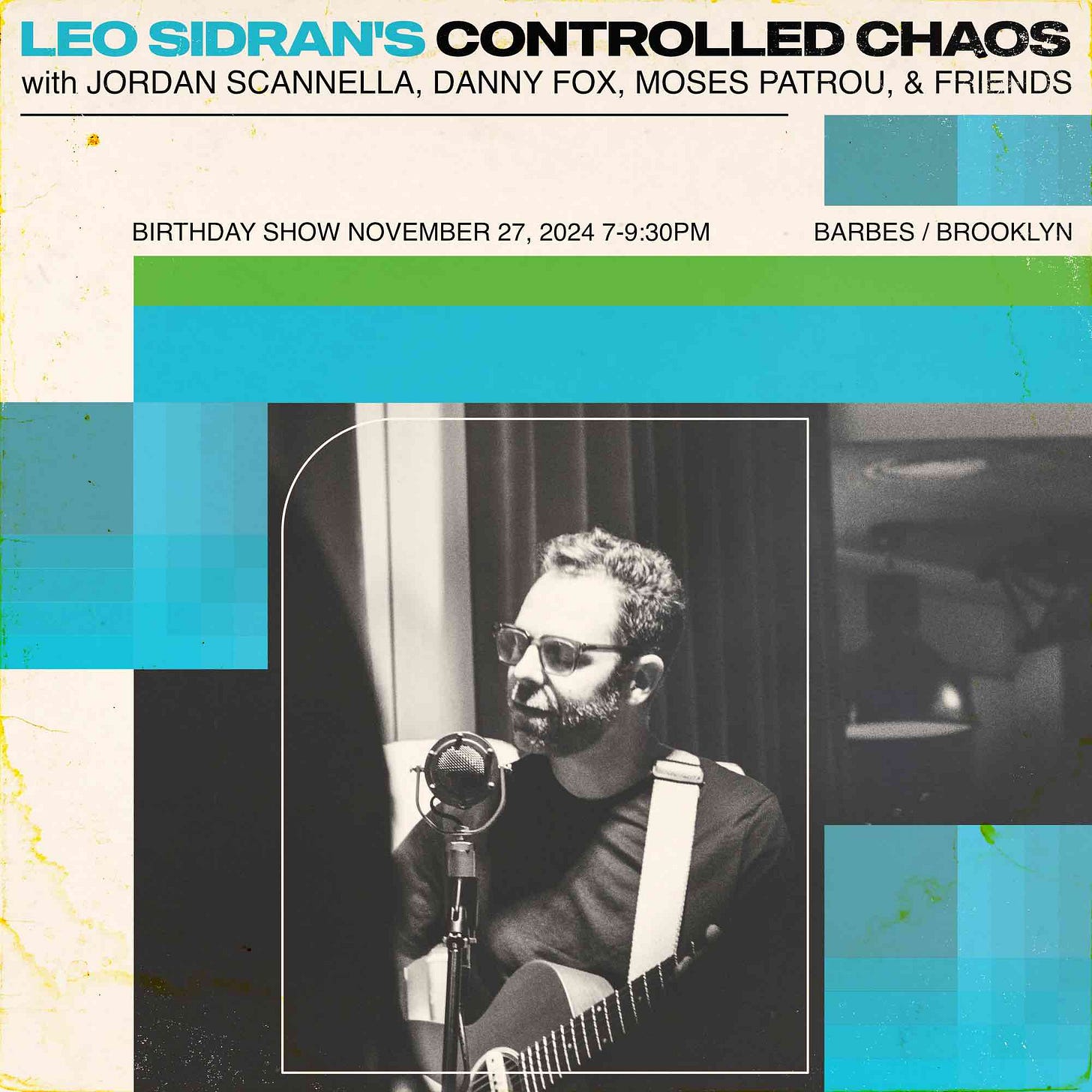Life Comes In: Maria Schneider (and me)
As she celebrates 30 years of running her band, Maria Schneider is considering her trajectory, and going through something that may or not be a crisis.
As she celebrates 30 years of running a band, composing and recording work and touring, Maria Schneider is considering her trajectory, and going through something that may or not be a crisis. She says, “I’m looking at my life and just saying ‘ok, what’s next?’”
In 1994, Schneider released her first album Evanescence and began to establish herself as one of the most compelling, sensitive and creative big band composers of her generation.
She has joined the ranks of celebrated composers, having earned 7 Grammy awards, honorary doctorates from her alma maters, the University of Minnesota and the Eastman School of Music, and an “NEA Jazz Master” award, but her journey has not been typical.
Maria grew up in the small town of Windom, Minnesota in the 1960s. (The most recent census data shows Windom to have a population of 4,797.) So she was raised in a kind of quiet, pastoral isolation. On the other hand, her father, who worked in the flax business, was an avid ham radio enthusiast and amateur pilot and world traveler which gave her a broader view of the world.
While Windom may not have been a typical launch pad for a composer, Maria grew up with a small runway behind her house which her dad used for his plane, and which suggested a vastness of opportunity beyond Windom.
Looking back on her childhood today, she considers this duality - the small town reality and the cosmopolitan awareness - to be at the center of her experience. She also views that time through a poetic filter, remembering it as both a “surreal” experience and a time that was full of “wonderment and mystery of how it all works.”
That tension, and that poetry, have accompanied her since childhood. Maria is a big believer in channeling her life experience through the music, of looking to the music for the meaning, and of following what she refers to as the “ouija board technique” of making art. She is not afraid to use words like “magic” and “destiny” when describing the creative process.
“Art has no agenda. But if you allow yourself to be organically yourself, then life gives you a voice through music.”
In conversation Schneider has a soulful, searching quality and a plainspoken midwestern cadence that could disguise her depth and sophistication. Not only is she a truly masterful composer but she has also been a strong voice for music advocacy and a forward thinking businesswoman. For twenty years she has released her albums exclusively on the Artist Share label (she was the first artist to release music on the label), which was at the forefront of the "fan-funding" model that later became a blueprint for many other crowdfunding websites.
She speaks passionately about the dysfunction in the music business, having testified before Congress, given commentary on CNN, participated in round-tables for the United States Copyright Office, and has written extensively on the digital economy as related to music and beyond.
But while she uses her spoken voice on behalf of her art, she uses her artistic voice to advocate for something deeper. “Art illuminates certain truths in an emotional way that is somewhat mystical and that changes people,” she says.
Her most recent album of original work Data Lords, a two album set divided by The Digital World and Our Natural World, came out in 2020. She described it as “A story of two worlds…one clutters the mind, the other clears it; one seduces and exploits, the other nurtures; one ultimately isolates, the other truly connects; one clamors for our attention, the other simply awaits it; one force feeds answers, the other inspires questions; one manipulates our thoughts, the other grants freedom of thought.”
Today Maria Schneider is taking a moment to process it all. And she’s taking the opportunity to celebrate her victories: she’ll perform a retrospective concert at Town Hall in New York city on Saturday, November 23.
Schneider is a Sagittarius. But she has four planets in Capricorn. How do I know this? Because in a lovely twist of fate, we discovered that we have the same birthday, November 27th. It led to a spirited and spiritual discussion at the end of our talk, about our shared “mystical, impractical” tendencies.
So this is my birthday episode, and I share it with my new friend and birthday buddy Maria Schneider.
I will celebrate my birthday next Wednesday, November 27 at a Barbes in Brooklyn for a birthday show.
We met recently at her Upper West Side apartment to talk about 30 years of the Maria Schneider Orchestra, “what’s next” for her, as well as what happened so far (including her remarkable collaboration with David Bowie at the end of his life) and what she makes of it all.
“Art illuminates certain truths in an emotional way that is somewhat mystical and that changes people.”







